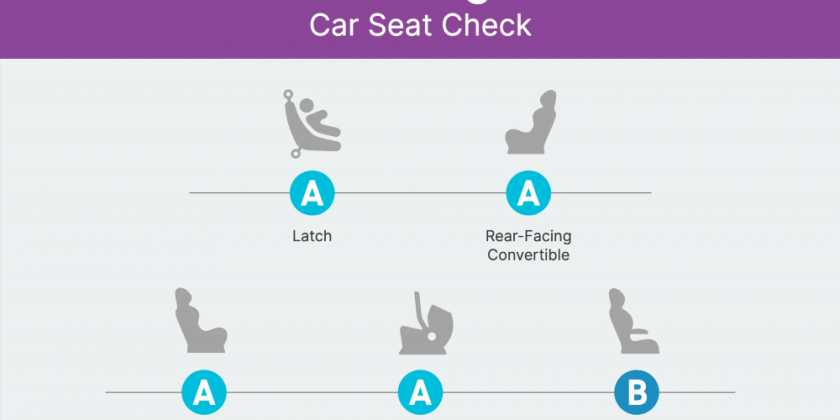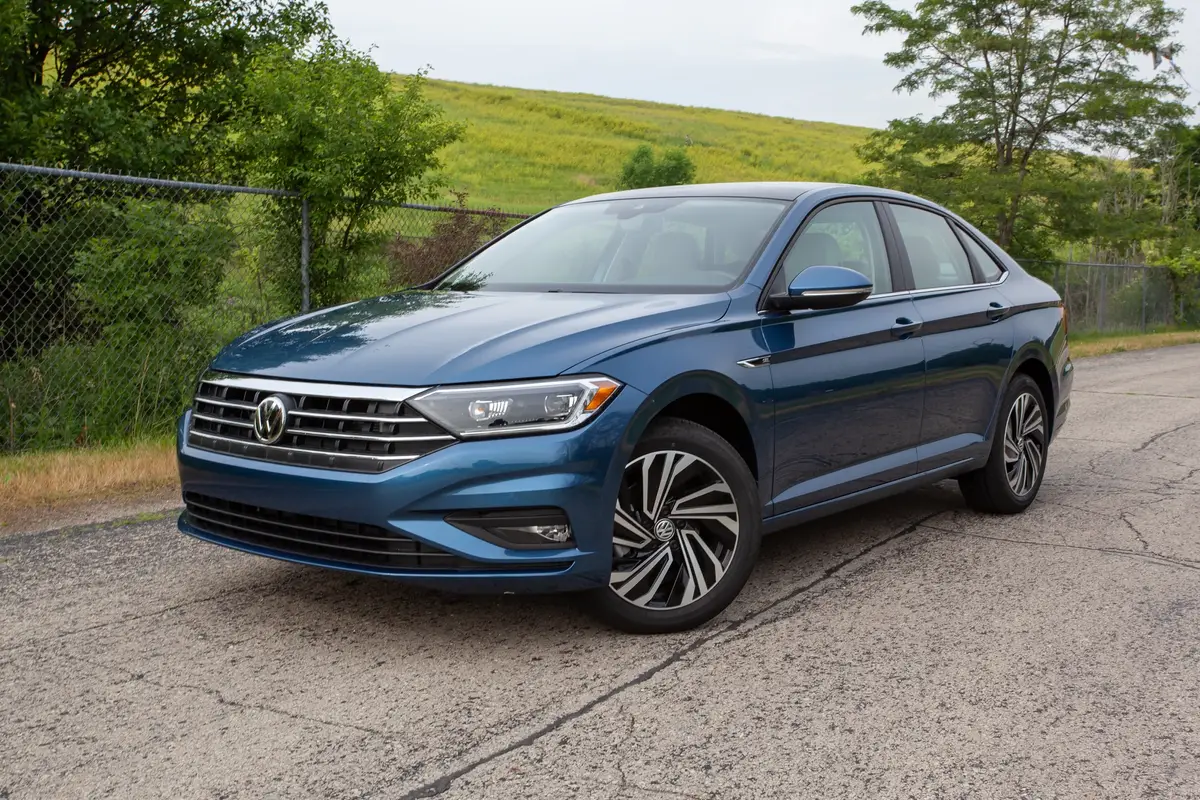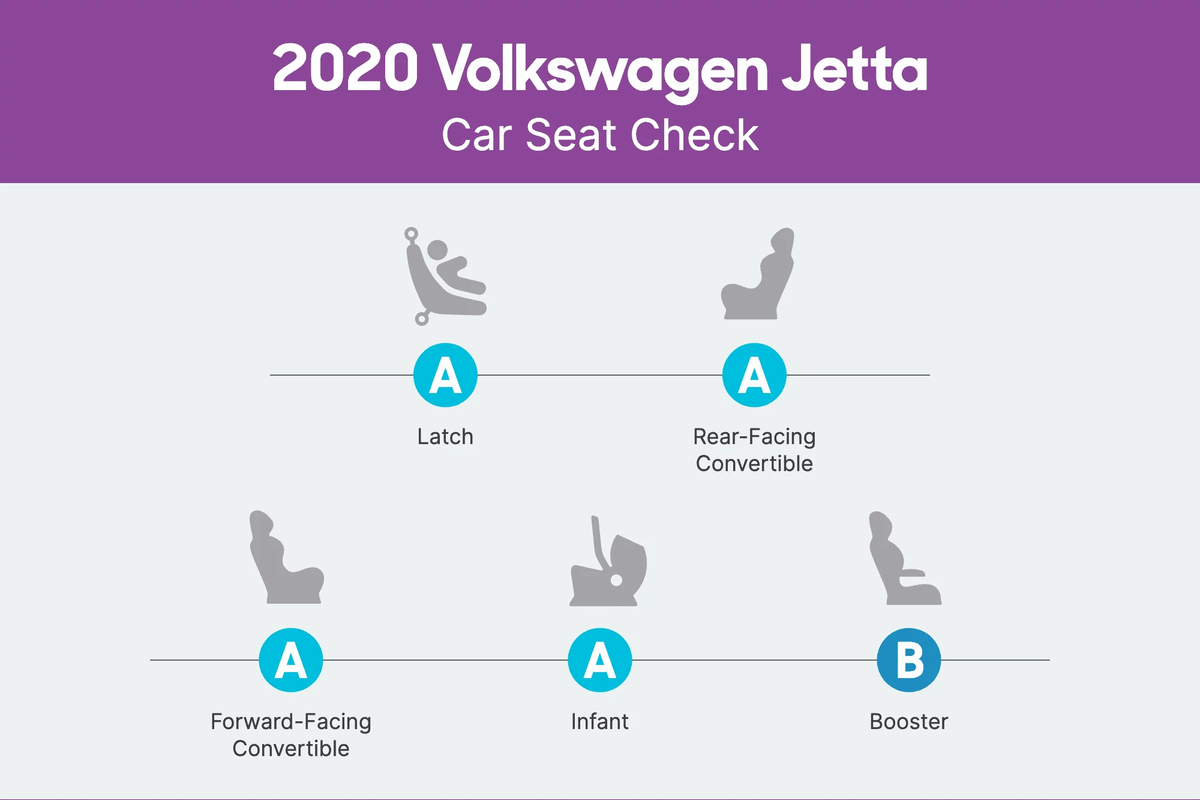Editor’s note: This Car Seat Check was written in May 2018 about the 2019 Volkswagen Jetta. Little of substance has changed with this year’s model. See what’s new for 2020 or see the models compared.
The verdict: The Jetta may look familiar, but Volkswagen’s compact car got a major redesign for 2019. The sedan rides on an all-new platform and gets an upgraded cabin and new multimedia system. In back, caregivers of kids in car seats will find a lot to like from the Jetta’s easy-access Latch anchors to its ample legroom for rear-facing car seats.
Does it fit three car seats? No
Take a look at how the Latch system and each car seat scored below in our Car Seat Check of the 2019 Volkswagen Jetta.
Related: Search Car Seat Checks
A Grade
- Latch: Two sets of Lower anchors are exposed in the outboard seats; connection was easy. There are three top tether anchors on the rear shelf behind the head restraints, and we had no trouble with connection.
- Infant seat: Installation was easy, and our 5-foot, 6-inch front passenger had ample legroom.
- Rear-facing convertible: Installation was easy, and our 5-foot, 6-inch front passenger had ample legroom.
- Forward-facing convertible: The Jetta’s fixed head restraint didn’t interfere with the installation or fit of the convertible. Latch and top tether connection were both easy.
B Grade
- Booster: The fixed head restraint isn’t very big, so it didn’t interfere with the booster’s placement on the wide, flat seat. The buckles are flush with the seat bottom cushions, though, which could make them tough for kids to grasp and use independently.
C Grade
- None
Grading Scale
A: Plenty of room for the car seat and the child; doesn’t impact driver or front passenger legroom. Easy to find and connect to Latch and tether anchors. No fit issues involving head restraint or seat contouring. Easy access to the third row.
B: One room, fit or connection issue. Some problems accessing the third row when available.
C: Marginal room plus one fit or connection issue. Difficult to access the third row when available.
D: Insufficient room, plus multiple fit or connection issues.
F: Does not fit or is unsafe.
About Cars.com’s Car Seat Checks
Editors Jennifer Geiger, Jennifer Newman and Matt Schmitz are certified child safety seat installation technicians.
For the Car Seat Check, we use a Graco SnugRide Classic Connect 30 infant-safety seat, a Britax Marathon convertible seat and Graco TurboBooster seat. The front seats are adjusted for a 6-foot driver and a shorter passenger. The three child seats are installed in the second row. The booster seat sits behind the driver’s seat, and the infant and convertible seats are installed behind the front passenger seat.
We also install the forward-facing convertible in the second row’s middle seat with the booster and infant seat in the outboard seats to see if three car seats will fit; a child sitting in the booster seat must be able to reach the seat belt buckle. If there’s a third row, we install the booster seat and a forward-facing convertible. Learn more about how we conduct our Car Seat Checks.
Parents should also remember that they can use the Latch system or a seat belt to install a car seat, and that Latch anchors have a weight limit of 65 pounds, including the weight of the child and the weight of the seat itself.
Cars.com’s Editorial department is your source for automotive news and reviews. In line with Cars.com’s long-standing ethics policy, editors and reviewers don’t accept gifts or free trips from automakers. The Editorial department is independent of Cars.com’s advertising, sales and sponsored content departments.
Source: Read Full Article


